Guinea pigs make wonderful pets, and their dietary needs are a crucial aspect of their care. Providing a balanced diet for your furry friend can be challenging, but it’s essential for maintaining their health and well-being. One common question that arises is whether guinea pigs can eat cashew nuts. Let’s explore this topic in detail and find out whether cashew nuts are safe for guinea pigs to consume.
Key Takeaways:
- Cashew nuts are not recommended for guinea pigs due to their high-fat content and potential hazards such as choking.
- Guinea pigs have specific dietary needs, and their diet should consist primarily of hay, fresh vegetables, and high-quality pellets.
- A well-balanced diet is crucial for maintaining the health and happiness of your guinea pig.
- Consulting a veterinarian is important if you have any concerns about your guinea pig’s diet or health.
- There are plenty of safe and healthy alternatives to cashew nuts that can be offered to your guinea pig as treats.
Understanding Guinea Pig Diets
Guinea pigs are herbivores, meaning their diet consists of plants, hay, and grasses. It’s important to provide a balanced diet that meets their nutritional needs to ensure good health and longevity.
Hay should form the foundation of a guinea pig’s diet, constituting around 80% of their food intake. Timothy hay is the most recommended type, as it is low in calcium and high in fiber, essential for proper digestion.
Vegetables and fresh fruit can be offered in small amounts as a supplement, making up around 10-15% of their diet. These should be high in vitamin C, as guinea pigs are unable to produce this vitamin on their own. Some recommended options include carrots, kale, and bell peppers.
Additionally, commercially available guinea pig pellets can be included in their diet in moderation, making up around 5-10% of their food intake. Look for pellets that are high in fiber and free from added sugars and artificial colors or preservatives.
Avoid offering high-fat or high-sugar treats, as these can lead to obesity and other health issues.
The Importance of Balanced Nutrition
A well-balanced diet is essential for a guinea pig’s overall health and well-being. Providing appropriate amounts of hay, vegetables, pellets, and water ensures they receive all the essential nutrients their bodies require. Avoid offering insufficient or excessive amounts of any particular food item, as this can lead to digestive issues, malnutrition, or obesity.
- Tip: Observe your guinea pig’s eating habits and adjust their diet as necessary. Some guinea pigs may require more or less hay or certain types of vegetables, depending on their individual needs.
Nutritional Profile of Cashew Nuts
Cashew nuts are a popular snack known for their buttery texture and unique flavor. But what are their nutritional qualities? Let’s find out.
Macronutrients in Cashew Nuts
One ounce (28 grams) of cashew nuts contains:
- 157 calories
- 12.4 grams of fat
- 5.2 grams of protein
- 9.2 grams of carbohydrates
- 0.9 grams of fiber
- 1.7 grams of sugar
As we can see, cashew nuts are relatively high in both fat and calories. However, they are also a good source of protein and other important nutrients.
Micronutrients in Cashew Nuts
Cashew nuts are also rich in several micronutrients:
- Copper
- Magnesium
- Manganese
- Phosphorus
- Vitamin K
While cashew nuts offer some nutritional benefits, they also have a high fat content and should be consumed in moderation. Additionally, guinea pigs have specific dietary needs and are unable to digest certain foods, including cashew nuts. It’s important to prioritize your pet’s health by providing a balanced and appropriate diet.
Safe and Unsafe Foods for Guinea Pigs
It’s important to offer your guinea pig a well-balanced and varied diet to ensure they receive all the necessary nutrients for optimal health. Some human foods can be safe for guinea pigs, but others can pose a risk. Here’s a list of safe and unsafe foods for your guinea pig:
Safe Foods
- Hay
- Fresh greens, such as kale, spinach, and parsley
- Vegetables, such as carrots, bell peppers, and cucumbers
- Fruits, such as strawberries, blueberries, and oranges (in moderation)
- Pellets formulated specifically for guinea pigs
Unsafe Foods
- Chocolate and other sweets
- Avocado
- Onions and garlic
- High-sugar fruits, such as grapes and raisins
- Nuts, including cashews (which we’ll discuss further in Section 7)
Remember, even some safe foods should only be given in moderation as excessive consumption can lead to health problems. Always introduce new foods gradually and monitor your guinea pig’s reactions. Image alt tag: Safe foods for guinea pigs

Can Guinea Pigs Eat Nuts?
As much as we love nuts, guinea pigs have different dietary requirements. While nuts contain valuable nutrients, they may not be suitable for guinea pigs and can even pose risks to their health.
Unlike humans and other animals, guinea pigs cannot produce their own vitamin C. Therefore, their diet needs to include vitamin C-rich foods such as bell peppers and leafy greens. Nuts, on the other hand, do not contain vitamin C and are high in fat, which can lead to obesity and other health issues when consumed in excess. Additionally, some nuts are choking hazards or may contain toxins that can harm guinea pigs.
It is important to note that not all nuts are created equal, and some are safer than others for guinea pigs. For example, almonds and peanuts are high in fat and not recommended for guinea pigs, while cashews have a milder flavor and lower fat content.
It’s best to avoid feeding nuts to guinea pigs altogether and focus on providing a balanced and nutritional diet that meets their specific needs. If you want to offer your guinea pig a special treat, there are plenty of safe alternatives such as carrots and sliced apple.
Hazards of Nuts for Guinea Pigs
While guinea pigs may enjoy munching on nuts, it’s important to be aware of the potential hazards they can pose. One of the most significant concerns is the risk of choking. Nuts are small and hard, which can make them difficult for guinea pigs to chew and swallow properly.
Another hazard of nuts for guinea pigs is their high-fat content. A diet that is too high in fat can lead to obesity, liver disease, and other health issues. Additionally, some nuts may contain harmful substances, such as toxins or molds, that can be harmful to guinea pigs.
If you do decide to offer nuts to your guinea pig, it’s important to do so sparingly and in very small amounts to avoid any potential hazards. Always monitor your pet to ensure they are chewing and digesting the nuts properly. If you notice any signs of discomfort or digestive issues, discontinue feeding nuts immediately and consult with your veterinarian.
Cashew Nuts and Guinea Pigs
As tempting as it may be to share your cashews with your furry friend, it’s important to prioritize your guinea pig’s health and well-being. While cashew nuts are not toxic to guinea pigs, their high-fat content and small size can pose potential hazards that make them unsuitable for regular consumption.
Guinea pigs require a balanced diet that consists primarily of hay and fresh vegetables, with limited fruit and other treats. While some fruits or vegetables, such as carrots or blueberries, can be offered as occasional treats, nuts like cashews are not recommended for guinea pigs.
Additionally, guinea pigs can be prone to choking, and the small size of cashews can increase this risk. While these nuts may seem like a harmless snack, they can pose a threat to your guinea pig’s health.
If you’re looking for safe and healthy treats to offer your guinea pig, consider vegetables such as bell peppers or leafy greens. These choices will provide your pet with the necessary nutrients without putting them at risk.
Expert Insight:
“Cashews should be avoided as they contain high levels of fat relative to other seeds and nuts. As herbivores, guinea pigs require a low-fat diet rich in fiber and vitamins. Treats should not exceed 10% of the total diet and should be given infrequently.” – Dr. Karen Rosenthal, DVM, MS
Offering Treats to Guinea Pigs
Guinea pigs love treats just like humans do, but it’s important to treat them responsibly. Treats should only make up a small part of a guinea pig’s diet, with the majority consisting of hay, fresh vegetables, and water.
When it comes to selecting treats for guinea pigs, opt for natural and healthy options. Fresh fruits like strawberries, blueberries, and apples (without seeds) can be given in small quantities. Vegetables such as carrots, cucumbers, and bell peppers are also great choices.
Avoid processed and sugary foods, as these can be harmful to a guinea pig’s health. High-calorie and fatty treats like nuts or seeds should also be avoided.
Remember to always introduce new treats gradually and monitor your guinea pig’s reaction. Any sudden changes to their diet can cause digestive issues. Treats should never replace a balanced and nutritious diet.
Alternatives to Cashew Nuts
Although cashew nuts are not recommended for guinea pigs, there are many other options that can make great snacks or treats. Below is a list of safe and healthy alternatives:
1. Timothy Hay cubes
Timothy hay cubes are a great alternative to cashew nuts and provide essential fiber for your guinea pig’s digestive health. They are also available in a variety of flavors such as carrot, rosehip, and dandelion.
2. Fresh fruits and vegetables
Offering fresh fruits and vegetables in moderation is a great way to add variety to your guinea pig’s diet while also providing important nutrients. Some options include carrots, bell peppers, and blueberries.
3. Pellets
Pellets are an essential part of a guinea pig’s diet and can also function as a snack. However, be sure to choose a high-quality pellet brand that does not contain added sugars or artificial preservatives.
4. Dandelion greens
Dandelion greens are a tasty snack that can also provide valuable nutrients such as Vitamin A and potassium. You can either harvest them from your backyard or purchase them from a pet store.
5. Rosehips
Rosehips are a natural source of Vitamin C and can be a great alternative to sugary treats. They can be found in stores either fresh or dried.
By offering these healthy alternatives, you can provide your guinea pig with a varied, nutritious diet that promotes optimal health and well-being.
Monitoring Your Guinea Pig’s Health
Guinea pigs make wonderful pets, bringing joy and companionship to their owners. However, as with all pets, it’s important to monitor their health regularly to ensure their well-being.
When monitoring your guinea pig’s health, pay attention to their eating habits, weight, activity level, and behavior. Any changes in these areas may indicate possible health issues.
Regular veterinary check-ups are also important for your guinea pig’s health. A veterinarian can perform a thorough physical examination, check for any underlying health conditions, and provide advice on appropriate care and nutrition.
Signs of Illness
Some common signs of illness in guinea pigs to watch out for include:
- Loss of appetite or weight loss
- Unusual lethargy or lack of activity
- Discharge from the eyes, nose, or ears
- Abnormal breathing or wheezing
- Hair loss or skin irritations
- Changes in bathroom habits or appearance of feces or urine
If you notice any of these signs, it’s important to seek veterinary care for your guinea pig as soon as possible to prevent further health complications.
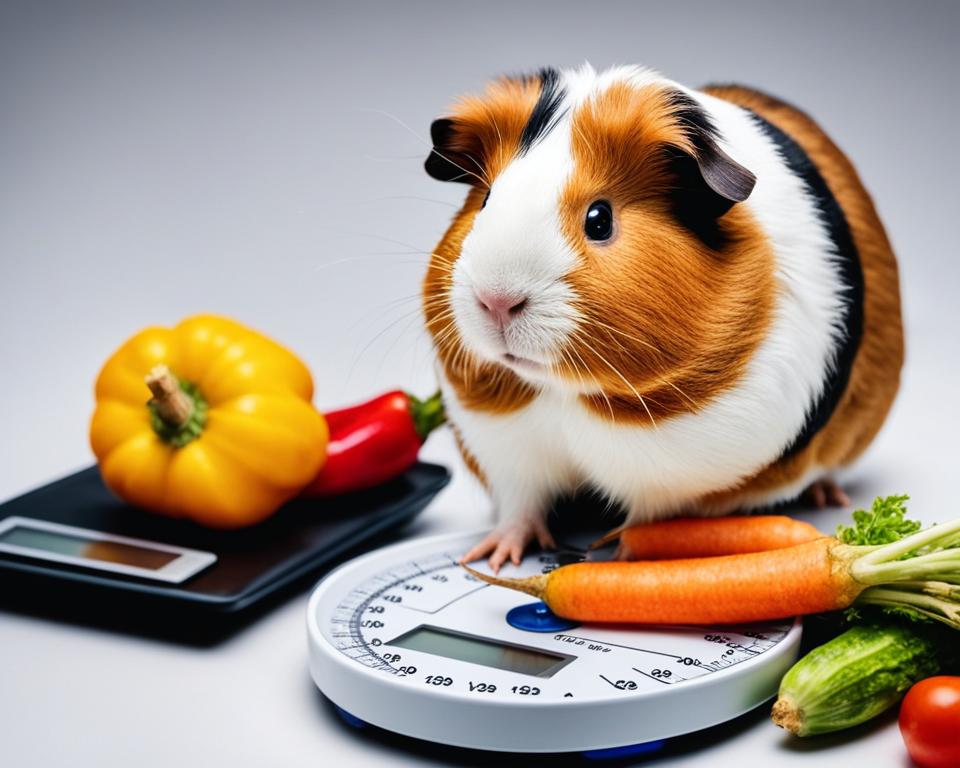
Ensuring the health and happiness of your guinea pig requires attentiveness and proactive monitoring. By paying attention to their habits and behavior and seeking veterinary care when necessary, you can keep your furry friend healthy and happy for years to come.
Consulting a Veterinarian
Guinea pigs are delicate animals, and their health requires special attention. As their caregiver, it’s your responsibility to monitor their physical and emotional well-being closely. If you have any questions or concerns about their diet or behavior, it’s crucial to consult a veterinarian who is experienced in treating guinea pigs.
A veterinarian can provide accurate, personalized guidance and help ensure your pet receives the appropriate care. They can also offer preventive measures to keep your guinea pig healthy. It’s important to find a trusted veterinarian who specializes in exotic animals or guinea pigs and has experience in treating them.
Don’t hesitate to contact a veterinarian if your guinea pig shows any signs of illness, including lethargy, loss of appetite, unusual behavior, or abnormal physical symptoms. Consulting a veterinarian promptly can prevent potential complications and help keep your pet healthy and happy.
Takeaways
- Consulting a veterinarian is essential if you have any concerns about your guinea pig’s health or diet.
- You should find a veterinarian who specializes in treating guinea pigs or exotic animals.
- Contact a vet immediately if you notice any unusual symptoms in your pet.
Conclusion
In conclusion, it is essential to prioritize the health and well-being of guinea pigs when selecting their diet. While cashew nuts may appear to be a tempting treat, it is important to understand that they are not recommended for regular consumption due to their high fat content and potential hazards. Additionally, offering treats in moderation is crucial to maintaining a balanced diet for your pet. To ensure that your guinea pig receives the nutrition they need, it is important to provide a varied diet that meets their specific requirements.
Remember to monitor your guinea pig’s health regularly and consult with a veterinarian if you have any concerns or questions. By following these guidelines and prioritizing your pet’s diet, you can help ensure that your beloved guinea pig remains happy and healthy for years to come.
FAQ
Can guinea pigs eat cashew nuts?
No, cashew nuts are not safe for guinea pigs to eat. They contain a high amount of fat and can potentially cause digestive issues and weight gain in guinea pigs.
What foods are safe for guinea pigs?
Safe foods for guinea pigs include fresh vegetables like lettuce, bell peppers, and carrots, as well as hay, pellets, and a small amount of fruits like apples and strawberries. It’s important to provide a balanced diet to meet their nutritional needs.
Why are cashew nuts not recommended for guinea pigs?
Cashew nuts are high in fat, which can lead to obesity and other health problems in guinea pigs. Additionally, they can be difficult for guinea pigs to digest, causing gastrointestinal issues.
What are some alternatives to cashew nuts for guinea pigs?
Safe alternatives to cashew nuts for guinea pigs include small pieces of fresh fruits like watermelon and blueberries, as well as leafy greens such as spinach and cilantro. It’s important to offer these alternatives in moderation.
How should I monitor my guinea pig’s health?
Monitoring your guinea pig’s health involves regularly observing their behavior, appetite, and bathroom habits. Look out for any changes in their physical appearance or signs of illness, such as sneezing, coughing, or lethargy. If you notice any concerns, it’s best to consult a veterinarian.
Should I consult a veterinarian for dietary advice for my guinea pig?
Yes, consulting a veterinarian is important when it comes to your guinea pig’s diet. They can provide specific guidance based on your pet’s unique needs and help you ensure they are receiving a balanced and healthy diet.

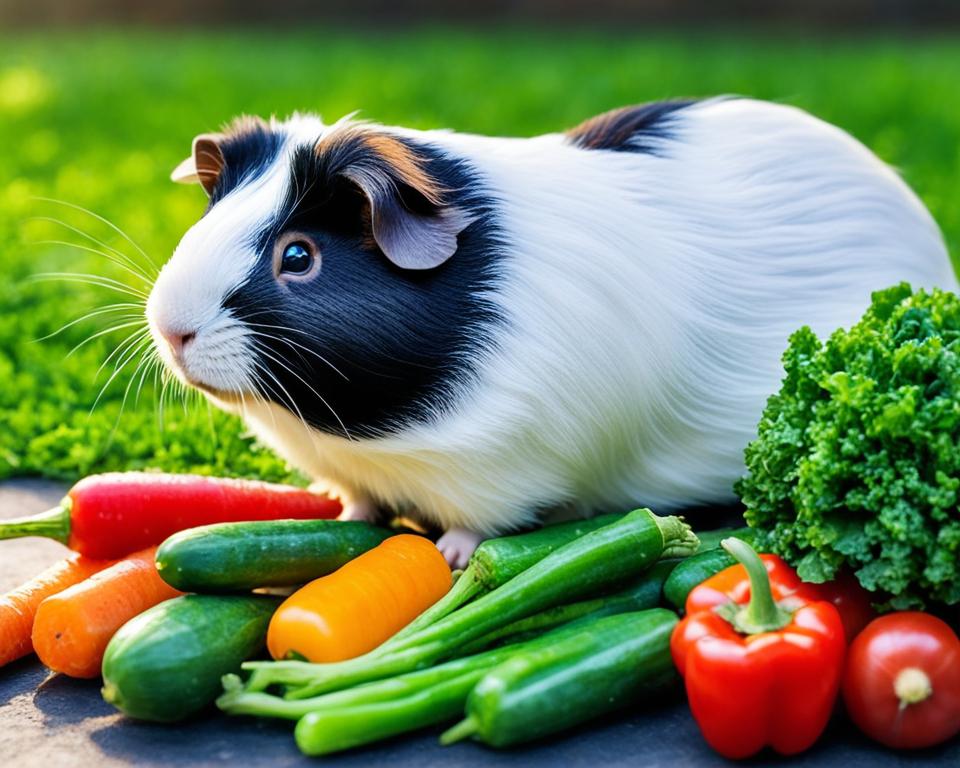
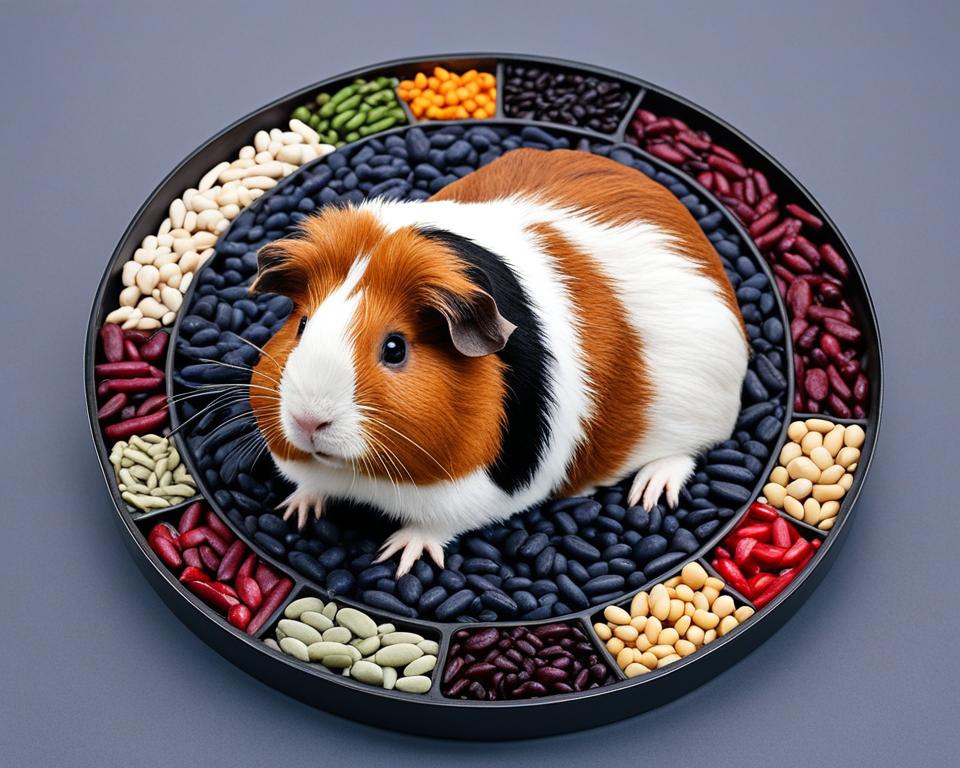
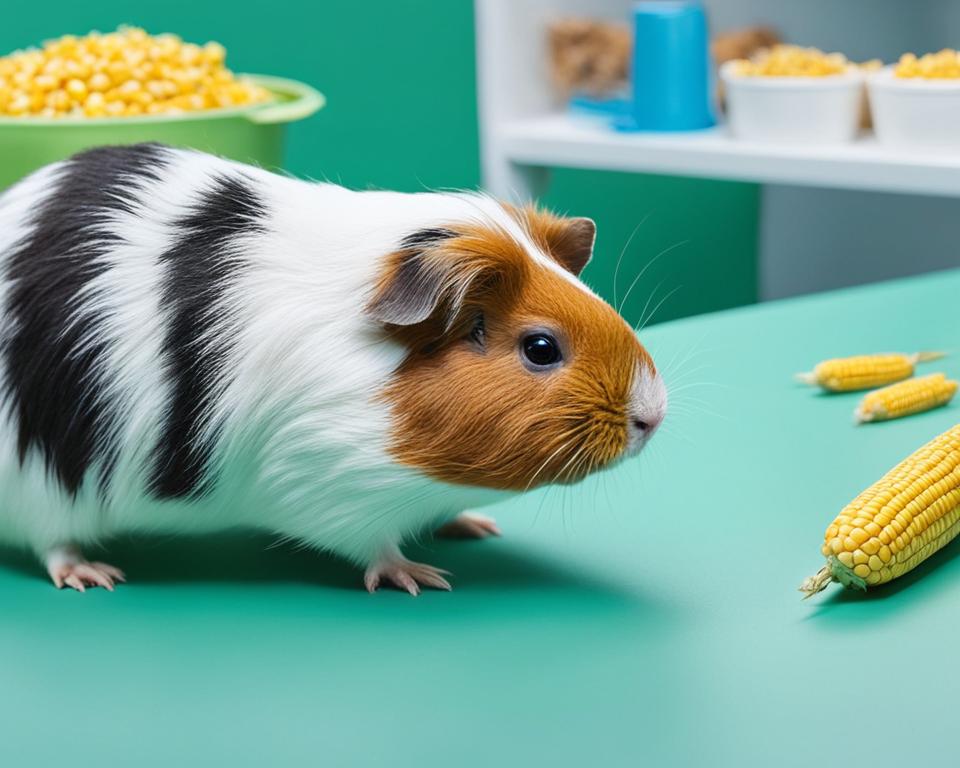
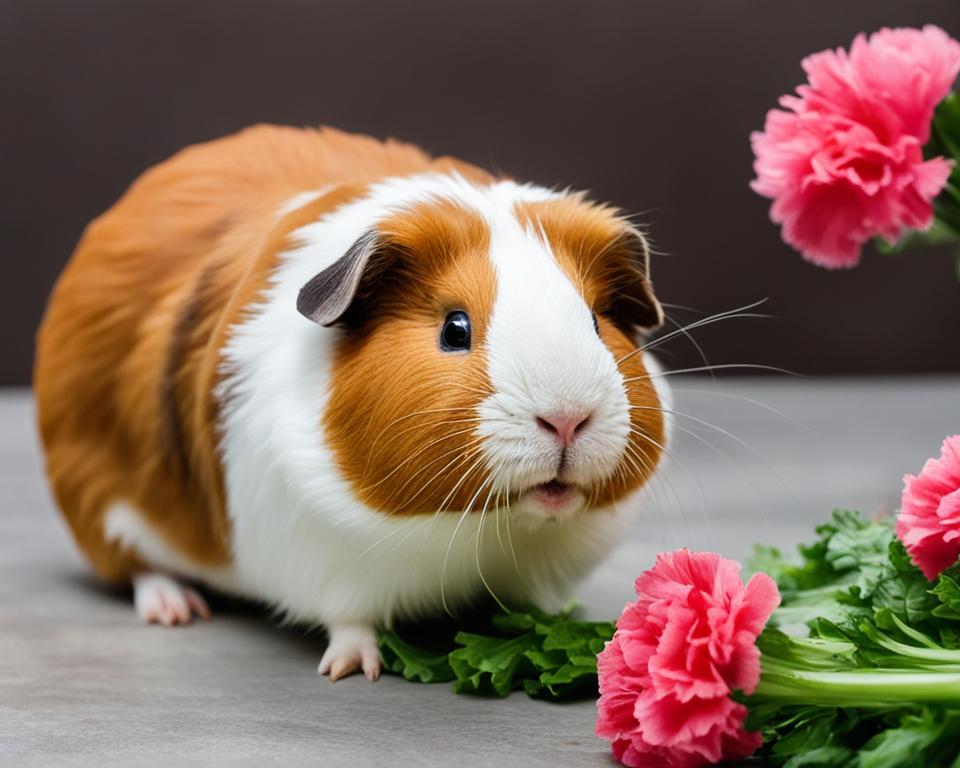
Leave a Reply